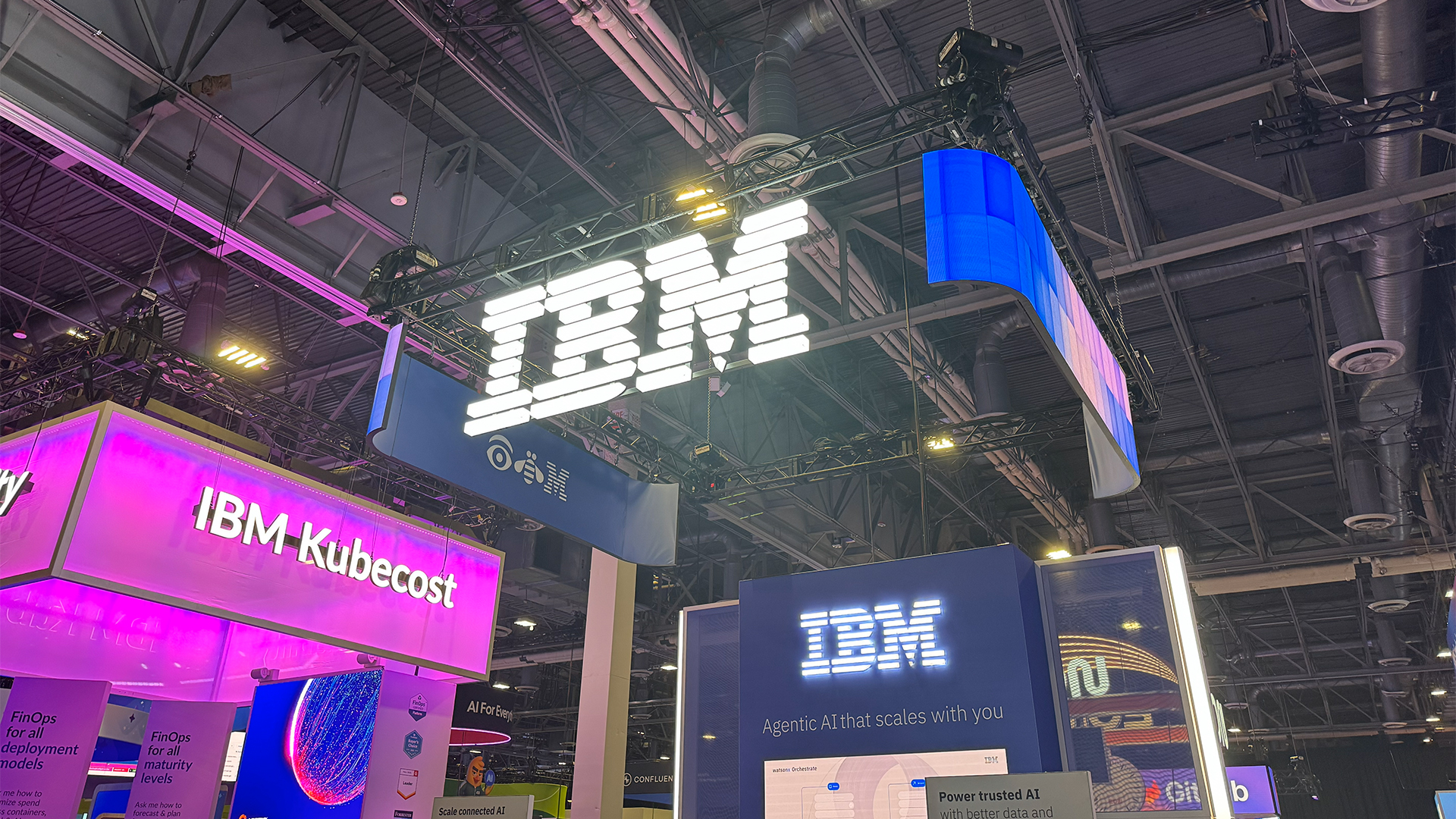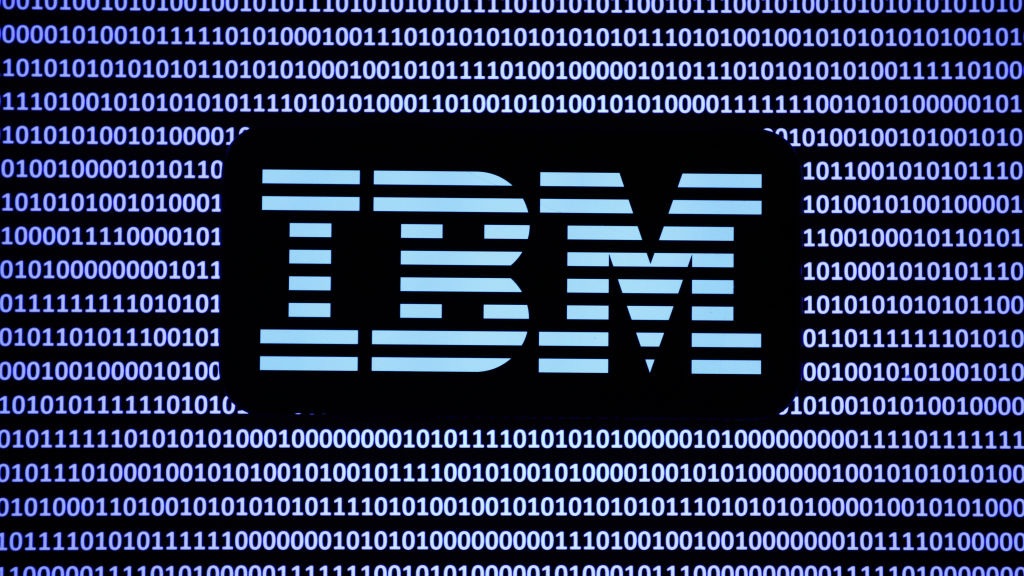IBM will keep spending big on business intelligence
The company has already spent billions on BI and analytics, but it's not stopping yet as IBM claims it is "just at the beginning."

Sign up today and you will receive a free copy of our Future Focus 2025 report - the leading guidance on AI, cybersecurity and other IT challenges as per 700+ senior executives
You are now subscribed
Your newsletter sign-up was successful
IBM will continue acquiring companies involved in business intelligence and analytics, because demand from its clients for the technology is so great that it needs to keep pressing forward.
So claimed Ambuk Goyal, general manager for business analytics at IBM, in an interview with IT PRO at the company's Information on Demand conference in Las Vegas.
IBM has already invested $12 billion over the last five years on business intelligence and analytics, with the recent purchase of business analytics company SPSS this year complementing a previous acquisition of Cognos.
He said the revolution around what was called information led transformation' was as big, or even bigger than what happened around ERP (Enterprise Resource Planning) 20 years ago.
"Information led transformation has just begun," said Goyal. "We are way ahead, but to me we are just beginning, because everybody is going to follow us. I say this is bigger than ERP and CRM (Customer Relationship Management) combined."
He added: "If we want to remain ahead, we have to deliver value to our clients. Every day, clients are telling us what kind of problems they can't solve."
IBM had around 15,000 new clients in the business intelligence space, and Goyal said that it was looking ahead with a huge research department doing first of a kind projects,
Sign up today and you will receive a free copy of our Future Focus 2025 report - the leading guidance on AI, cybersecurity and other IT challenges as per 700+ senior executives
"Our investment in this particular space will continue and we will build by partner," he said. "There's so much demand. It's an investment trend. Not only IBM is behind it. When we went to Wall Street, we said this is our growth strategy."
Of IBM's previous investment, Goyal said that the purchase of predictive analytics firm SPSS nicely fitted with the Cognos systems it already had.
"Now you can make every point of impact, whether it is call centre or point of sale, far more effective," he said. "Now you can make a predictive call centre or a predictive point of sale."
He added: "We don't have to integrate, so we can focus on innovation for businesses to transform themselves."
-
 ITPro Best of Show NAB 2026 awards now open for entries
ITPro Best of Show NAB 2026 awards now open for entriesThe awards are a fantastic opportunity for companies to stand out at one of the industry's most attended shows
-
 Mistral CEO Arthur Mensch thinks 50% of SaaS solutions could be supplanted by AI
Mistral CEO Arthur Mensch thinks 50% of SaaS solutions could be supplanted by AINews Mensch’s comments come amidst rising concerns about the impact of AI on traditional software
-
 IBM’s Confluent acquisition will give it a ‘competitive edge’ and supercharge its AI credentials
IBM’s Confluent acquisition will give it a ‘competitive edge’ and supercharge its AI credentialsAnalysis IBM described Confluent as a “natural fit” for its hybrid cloud and AI strategy, enabling “end-to-end integration of applications, analytics, data systems and AI agents”.
-
 IBM layoffs loom as ‘single-digit percentage’ of global workforce set for cuts
IBM layoffs loom as ‘single-digit percentage’ of global workforce set for cutsNews Headcount at the cloud giant has been decreasing steadily in recent years
-
 ‘There is no law of computer science that says that AI must remain expensive and must remain large’: IBM CEO Arvind Krishna bangs the drum for smaller AI models
‘There is no law of computer science that says that AI must remain expensive and must remain large’: IBM CEO Arvind Krishna bangs the drum for smaller AI modelsNews IBM CEO Arvind Krishna says smaller, more domain-specific AI models have become the most efficient and cost-effective options for enterprises.
-
 IBM puts on a brave face as US government cuts hit 15 contracts
IBM puts on a brave face as US government cuts hit 15 contractsNews Despite the cuts, IBM remains upbeat after promising quarterly results
-
 IBM completes HashiCorp acquisition after regulatory approval
IBM completes HashiCorp acquisition after regulatory approvalNews IBM has completed its $6.4 billion acquisition of cloud automation and security firm HashiCorp,
-
 IBM eyes Oracle expertise gains with latest acquisition
IBM eyes Oracle expertise gains with latest acquisitionNews The deal aims to help IBM address the complexities of public sector cloud transformation
-
 UK regulator to investigate IBM takeover of HashiCorp
UK regulator to investigate IBM takeover of HashiCorpNews The CMA is concerned that the merger could affect competition in the cloud services market
-
 Channel Focus: All you need to know about IBM's partner program
Channel Focus: All you need to know about IBM's partner programHow Big Blue seeks to go deep, tackling enterprise complexity: A brief guide to the role of partners in IBM's plan to accelerate software and consulting sales.